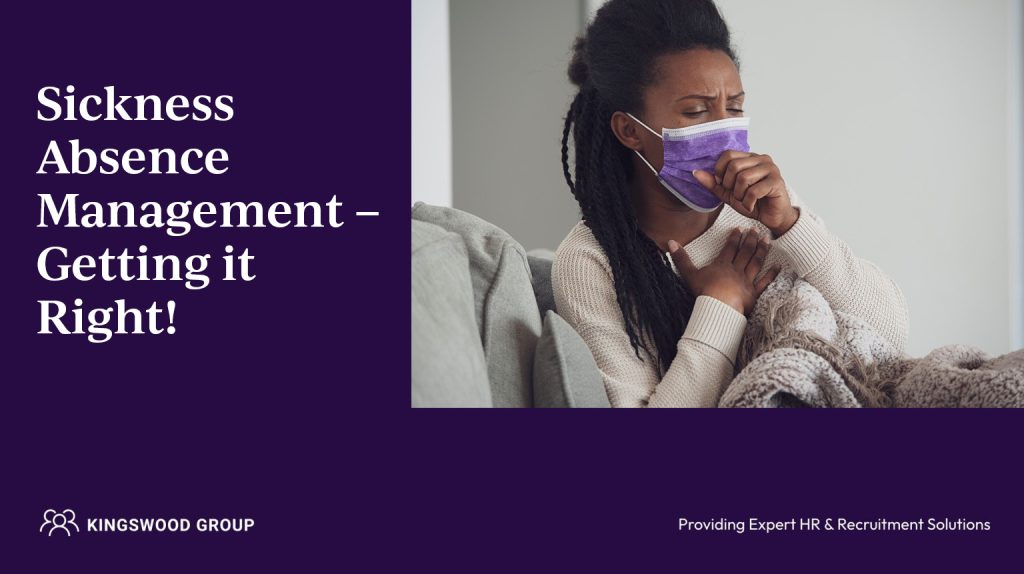
A report by the Institute for Public Policy Research (IPPR) has found that in 2023, the “hidden cost” of employee sickness reached £103bn in the UK – an increase of £30bn since 2018! The main cause of the cost increase was due to a decrease in productivity, with a lower proportion due to increased numbers of sick days.
The study found that UK employees are more likely to work through their sickness, which is causing the dip in productivity and adding to the hidden cost. This is also known as ‘Presenteeism’ which refers to the lost productivity that occurs when employees are not fully functioning in the workplace because of an illness, injury, or other condition.
There are a number of reasons why employees feel pressured to come to work. This can be because of financial insecurity, for example, the employee has no entitlement to company sick pay and therefore continues working so there is no loss of earnings.
Other factors contributing to presenteeism are bad workplace culture, with Managers putting pressure on employees to work through sickness; as well as a lack of understanding of long term health conditions that employee’s may be experiencing.
How should sickness absence be managed?
Policies and Procedures: First things first, implement a robust sickness absence policy. Consider what your company trigger points will be or whether you will use the Bradford Factor Score. A qualified HR consultant can advise you on best practice and ensure your business is compliant.
Leadership and Management: Ensure all your managers are on board with the absence management policy and procedure; It will not be effective without them.
Learning and Development: Train all your managers on the new policy before applying it; You want to make sure the policy is understood by all.
Informal meetings: Regular one to ones and completing return to work interviews after all absences is a great opportunity to learn more about your team, understand any underlying health conditions and will help you to proactively introduce any necessary adjustments that will facilitate attendance.
Accessibility: Make sure the policy is accessible to all by displaying on a staff notice board or making it available electronically. Also consider how the policy will be viewed by those with a disability.
Reasonable Adjustments: Employers need to give careful consideration to reasonable adjustments when managing the sickness absence, in line with their policy, of an employee who has a known health condition. In ‘Powell v Secretary of State for Work and Pensions’ the employment tribunal ruled that the employer did not consider all reasonable adjustments when managing the employee’s sickness absence that was linked to their disability. Whilst the employer did sensibly adjust the trigger points in their sickness absence policy, to allow the employee more time to improve their attendance, they did not consider a further extension, and it was ruled the employee was unfairly dismissed.
If you need further HR advice and guidance on managing sickness absence or training, please contact our HR team at Kingswood Group who are on hand to help. You can reach us via email on enquiries@kingswoodgroup.org or call us on 01245-204450.
Also, due to popular demand, on 23rd October 2024 we are hosting a free webinar on ‘Navigating Sickness Absence: Getting it Right’. We hope you can join us! Please visit our website to register your place today www.kingswoodgroup.org
Looking for Outsourced HR Services?
Call 01245 204450 to talk to one of our HR professionals today, or use our simple online contact form.
Outsourced HR Services